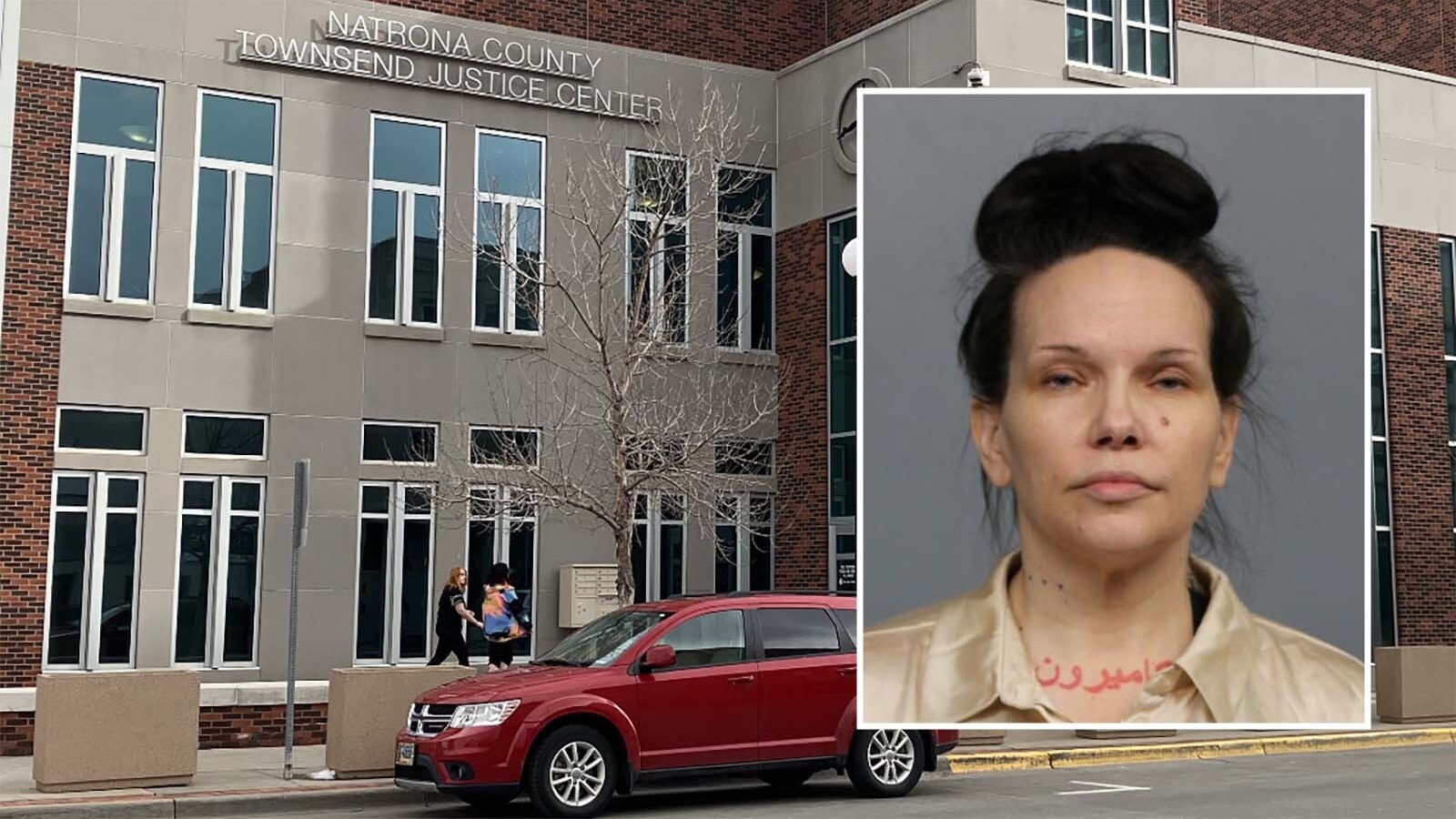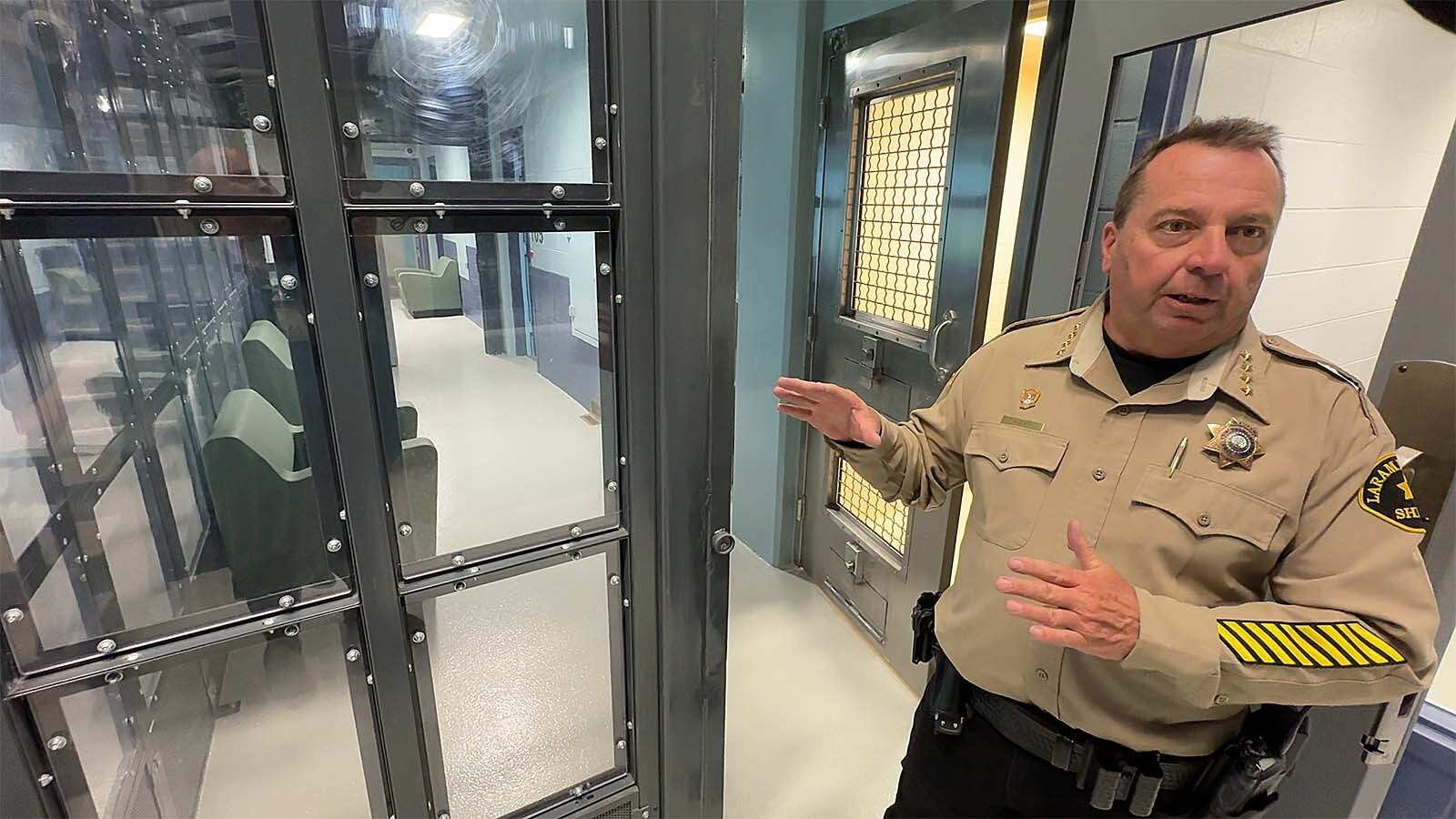The state of Wyoming has agreed to pay a $127,500 settlement to a man who accused Cheyenne police officers of illegally breaking into his home to arrest him four years ago.
Myron Martize Woods sued the city of Cheyenne, the Cheyenne Police Department and three police officers in the U.S. District Court for Wyoming last March over a Feb. 13, 2020, incident in which the officers entered Woods’ home, wrestled with him, and arrested him.
After the parties entered mediation this summer, they came to an agreement in which the state government does not admit wrongdoing but agreed to pay $127,500 to end the lawsuit.
Woods signed the agreement Aug. 8, then on Friday U.S. District Court Judge Kelly Rankin dismissed Woods’ lawsuit.
Rankin had dismissed both the city of Cheyenne and the Cheyenne Police Department from the lawsuit earlier, but allowed Woods to pursue claims against three former CPD officers in their individual capacities: Officers JJ Miles, JoAnne Young and Logan Warren.
The three are no longer employed with CPD, a spokeswoman has told Cowboy State Daily.
The state of Wyoming is self-insured and is paying the settlement total out of its insurance program on the officers’ behalf, Wyoming Attorney General Bridget Hill told Cowboy State Daily in a Monday email.
“As long as employees and peace officers are acting within the scope of their employment and authority when acting, they are covered by the self-insurance program,” wrote Hill.
The AG’s office represented the three officers in the lawsuit.
Woods’ attorney Jordyn Ashley Surber could not be reached immediately for comment Monday.
Started With An Abuse Call
Woods’ ex-girlfriend Brittany Jackson told Cheyenne police Feb. 13, 2020, that Woods had grabbed her neck.
Officers Young and Warren spoke with the woman, saw red marks on her neck and determined they had probable cause to arrest Woods on suspicion of domestic battery, a misdemeanor.
They went to Woods’ home without an arrest or search warrant and called Officer Miles to the house for backup, according to an earlier order by Rankin denying the officers’ qualified immunity on the illegal entry claim.
Young and Warren approached Woods’ front door while Miles arrived later and stayed at the bottom of the stairs. The officers wore body cameras.
Woods’ visibly pregnant wife answered the door and stepped into the threshold, with Woods standing behind her.
Warren and Young tried to pull Woods’ wife out of the way, a maneuver Rankin called “concerning.”
The following series of events is disputed, but the officers alleged that Woods came up next to his wife and jutted a hand out of the house.
Warren grabbed Woods to make an arrest, then all three officers went into Woods’ home without consent to arrest him and a struggle followed.
Woods was handcuffed and taken to a police car.
He was charged with domestic battery, but he was acquitted of that charge. He was charged and convicted of police interference, but the Wyoming Supreme Court overturned that conviction last year because the officers had triggered Woods’ resistance by entering his home illegally.
The Fourth Amendment
Police can enter a person’s home without a warrant if they have probable cause and “exigent circumstances,” like they’re finishing a hot pursuit that started elsewhere, they have a fear that someone will be injured if they don’t break in, or they fear the suspect is destroying evidence inside the home.
The officers claimed they were acting in “hot pursuit” when they rushed into Woods’ home and arrested him, but Rankin refuted that.
“There was no immediate or continuous pursuit of (Woods) from the scene of a crime,” Rankin wrote.
The officers had argued that Woods breached his own threshold first by jutting an arm outside.
Rankin wasn’t sure whether Woods did so, but it doesn’t matter, he wrote, because the officers’ grabbing of Woods’ wife would have coerced Woods into sticking his arm outside.
Police can’t unlawfully coerce a man into coming outside his own home as a Fourth Amendment workaround.
And because the officers violated Woods’ clearly established rights, they can’t insulate their conduct from liability using the qualified immunity defense, Rankin wrote.
A Little More On That Settlement
Woods agreed in the settlement to release the state governmental entities and any government employees from any future or further claims stemming from the break-in, Woods’ arrest or his stay in jail from Feb. 13-14, 2020.
The state does not admit Woods’ claims against the officers or any wrongdoing, but is settling to avoid “the delay, inconvenience, expense and uncertainty of further litigation,” says the settlement.
In a criminal appeal, the Wyoming Supreme Court declared the officers' entry into Wood's home unlawful for the purposes of overturning his criminal conviction stemming from this incident.
But in a different legal sense, whether the officers committed unlawful entry as a civil wrong has not been officially decided by this lawsuit, though Rankin called their actions "concerning."
Woods is responsible for any tax consequences from his settlement.
Clair McFarland can be reached at clair@cowboystatedaily.com.





